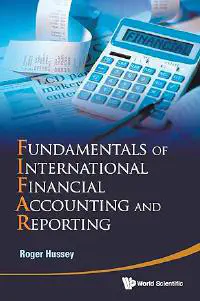Overview
The term “asset” plays a fundamental role in economics and finance, representing anything of economic value owned or controlled by an individual, corporation, or country with the expectation of future benefits. Assets are the foundation of wealth and are essential for financial planning and economic analysis.
Assets come in various forms and are commonly categorized as tangible or intangible. Tangible assets are physical and include real estate, machinery, inventory, and cash—resources often used in business operations or held for investment. Intangible assets, while non-physical, also hold significant value. These include intellectual property such as patents, copyrights, trademarks, brand equity, and proprietary business practices that can provide competitive advantages.
Another key classification is between current and non-current assets. Current assets—like cash, accounts receivable, and inventory—are expected to be converted into cash or used within one year. Non-current (or long-term) assets—such as buildings, land, or long-term investments—offer economic benefits over a longer period and are crucial for long-term planning.
Financial assets are a separate category that includes instruments like stocks, bonds, and bank deposits. These assets represent a claim to future income or ownership and often derive their value from contractual rights. Financial assets are central to investment markets and play a critical role in ensuring market liquidity and economic activity.
In essence, assets are the building blocks of wealth creation. They enable income generation, capital appreciation, and serve as a buffer against financial risk. Proper asset management is essential for individuals, businesses, and governments alike, as it drives sustainable growth and economic resilience.
In Context
An asset is “a resource controlled by the enterprise as a result of past events and from which future economic benefits are expected to flow to the enterprise”.
This definition is more complex than the simple statement that an asset is “what a business owns”. The definition recognises that a business may not own an asset but may have entered into an agreement with another party that it can use or has control of an asset. This control will arise from an event in the past, such as entering into a formal agreement. The final, and very important, part of the definition is that future economic benefits are expected to flow to the enterprise.
A business will acquire control of premises, equipment, fixtures and other assets in the expectation that they will lead to benefits either in the form of cash or other assets, or in the form of cost savings. For example, a company may purchase some expensive computer-controlled equipment that will substantially reduce its production costs.
In commerce, the purpose of assets is to produce income. If a business produces oil, the rigs, trucks, and even the land are all assets. Should the business sell clothing, its merchandise and display cases are assets. According to Marshall and McManus, “Assets are probable future economic benefits obtained or controlled by a particular entity as a result of past transactions or events. In brief, assets represent the amount of resources owned by the entity.”
Because of the breadth of this accounting definition, exactly what constitutes an asset can become very esoteric to the nonaccountant. For example, the logo of the Coca-Cola Company is recognized worldwide. For many people, all they need to know about a soft drink is its logo before they buy. As a result, the trademarked logo of Coke is worth millions, perhaps billions. Just exactly how much it is worth cannot be determined accurately unless Coke decides to sell the logo itself—an unlikely event. The logo alone is called an intangible asset, one of the two types of assets in commerce.








